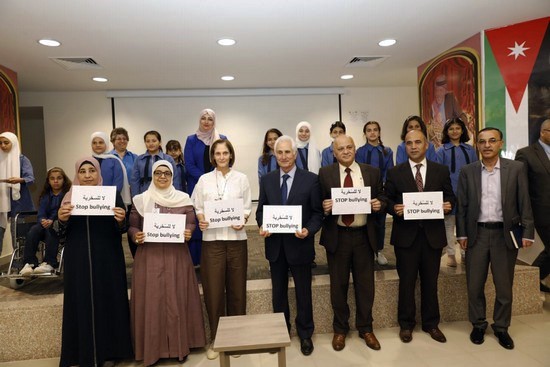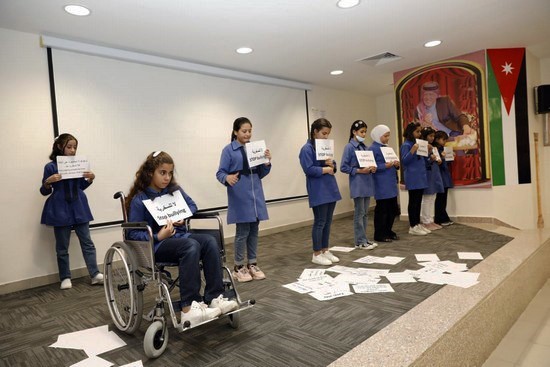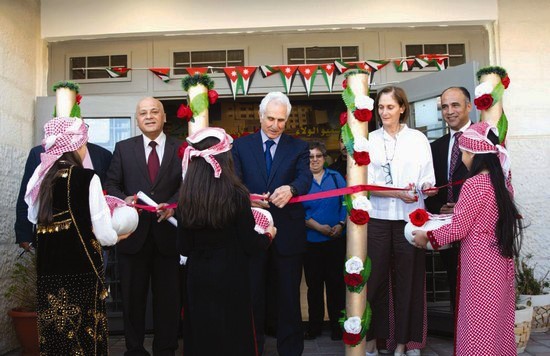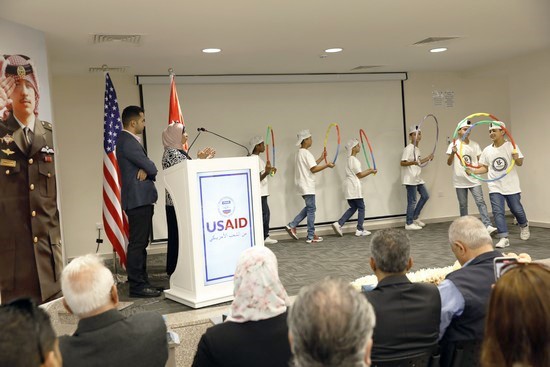AMMAN —
Minister of Higher Education Wajih Owais and
Minister of Public Works and Housing Yahya Kisbi last week inaugurated four USAID-built public schools in
Karak and Aqaba.
اضافة اعلان
The US agency
gave a $350 million grant to build 25 such educational facilities that stand
out through their enrolling of students with disabilities.
Twelve schools
are ready to welcome students, the other 13 are expected to be completed before
the end of the year.

Mission Director
Sherry F. Carlin, who accompanied the ministers and media representatives on
the tours Tuesday and Wednesday, expressed pride in the achievements, said the
endeavor “is not only USAID; it is a strong partnership with the
Ministry of Education and Ministry of Public Housing”.
Built to US
specifications as far as safety and accessibility for children with
disabilities are concerned, the schools may be replicated elsewhere in the
Kingdom, she said.
“We are
committed to continuing to work with the government of Jordan on expanding this
module across this country.”

Two schools were
inaugurated in
Karak: Thania Basic Mixed School and Mu’ta Basic School for
Boys, and two in Aqaba: Al-Amal Inclusive School, and Al-Tasea’ Basic Mixed
School.
By building
them, the Ministry of Education is hoping to solve the problem of overcrowding
and double shift systems public schools have witnessed since the pandemic
started.

Some 223,000
students shifted from private to public schools due to the economic hardships
brought about by the pandemic, which brought the number of public school
students to 2.12 million in Jordan.
Secretary-General
of the Ministry of Education for Technical and Financial Affairs Najwa Qbailat
told
Jordan News that the
USAID schools help the ministry solve the
issue of overcrowdedness, get rid of rented buildings, and “provide a
supportive environment through their labs, playgrounds, and libraries”.
The new school
buildings, which make use of modern technology, are both nurturing students’
creativity and successfully integrating disabled students.

“The school
changed a lot of things, but most importantly, it broadened the students’
horizons and our energy, as teachers; our performance has changed, so did the
students’, now we have many things we did not have before, and we are taking
advantage of them,” Raida Elian, teacher at Thania Basic Mixed School, told
Jordan
News.
Al-Amal School
principal Salam Majali told
Jordan News that the new inclusive school
“is great because it empowers hearing impaired students and strengthens their
personalities”.
The USAID
schools include theaters, science labs, vocational training labs, computer
labs, playgrounds, and multipurpose rooms, according to the Ministry of
Education’s Director of Buildings and International Projects Ibraheem
Al-Samamah.
President of the
Aqaba Special Economic Zone (ASEZA) Nayef Bakhit, who toured Al-Amal School,
told
Jordan News that the “qualitative transformation from the old
school building to this creates broader horizons that will enable the local
community to be in touch with their young ones”.
Kisbi told
Jordan
News that the USAID school project does not only benefit students, parents,
and teachers, it also provides an opportunity to train and employ fresh
engineering graduates who can benefit from “the new building code that was
established with the help of USAID”.
“These schools are made
to take in students with different kinds of disabilities, so all the building
mechanisms and equipment are made to suit all kinds of students, which is
different from what it used to be,” he said.
Read more Features
Jordan News



